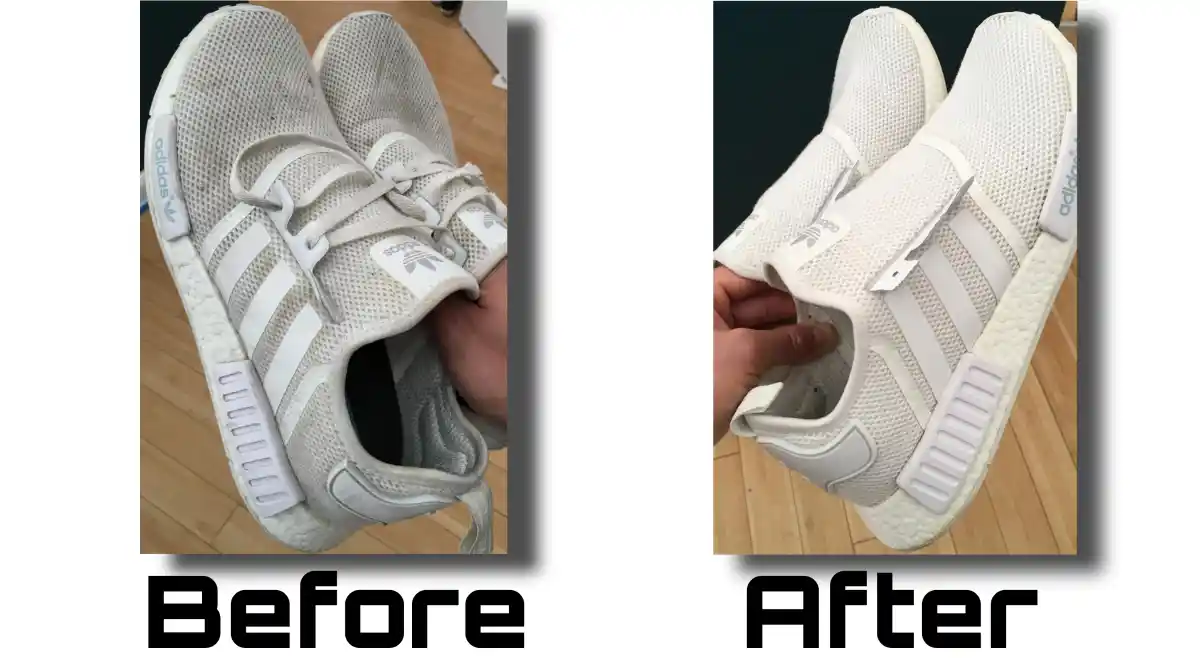It’s too late if your debt has gone to collections already. They will search the whole country for you. Your best way out is through negotiation, but if your current situation won’t allow that, perhaps hiding from them will help. In this post, we are going to talk about how to hide from debt collectors and get away with it. These tips do not keep you from debt permanently but can afford you the time to pay back without hurting your credit.
The general method that will typically keep you out of sight of debt collectors is to change your contact information, including your phone number and email address. You might also have to relocate to a different neighborhood. Change your job and avoid public transportation. Do not apply for credit because the collection will eventually soft-hit your credit to find you. Debt collectors are experts at annoying you with calls and emails. In extreme cases, they contact your relatives and friends to turn you in or get you to repay the debt.
How to Hide from Debt Collectors

Hiding from the collection will not solve the problem, but these tips will help you hide and buy time to repay the debt.
1. Change Your Contact Information
The first step is to change your contact information to hide from debt collectors, including your phone number and email address. Make sure you notify your friends and family about your updated phone number and email address to keep in contact with them. You also want to inform them about the collectors who will try to get to you through them at some point.
2. Relocate to a New Residence
If your debt is huge, consider relocating to a different place, typically a rural area. Cities are overly filled with surveillance cameras and other technologies that can be used to identify you. Even your vehicle number plate can be captured and identified, which the collection agency will leverage to track you down. In this case, you may want to hide your registration number from cameras. I wrote about all the working tips here, so make sure to read that article.
3. Change Your Job
You need a job to pay the debt, but you have to leave your job because they will come for you where you work. If the debt is not worth it, then there may be no need to leave your job. However, expect the collection agency to pay you a visit almost daily.
4. Do Not Apply for Credit
Do not apply for further credit as long as you hide from the collections. They can perform a soft hit on your credit, which will reveal your recent loans and the contact information they will use to locate you. The soft hit or credit inquiry may have a small impact on your credit score.
5. Avoid Public Transportation
You could still cruise around in your vehicle instead of using public transportation. A debt collection agency can gain access to the train station record, for example, to find out if you have been traveling.
6. Change Your Identity
The last thing you want to do to hide from debt collectors is to assume a new identity. Unfortunately, it is illegal to assume a new identity, and you could be paying far more than your debt if you get caught. Faking your identity will mean forging IDs and other paperwork for your bank, renting an apartment, getting a job, etc. You may have to fake a pay stub for rent, forge a new birth certificate, or even falsify a bank statement for a loan as a result of hiding your identity from debt collectors.
How Do Debt Collectors Find You?
Before you know how to hide from collections, here are the ways they find you:
1. Through Your Creditor
A debt collection agency begins with the creditor when looking for you. When you apply for a loan, utility, credit card, or any other service, you provide your name, address, phone number, and other information. If you provide valid and up-to-date information, the collector will be able to locate you. If they cannot get to you with your creditor’s information, they devise or resort to other means. Collectors will also attempt to get to you through your family members and friends using the contact information you gave to the creditor. They search for you as if you are a fugitive fleeing from the law. Technically, you are.
2. Through Data Brokers
A data aggregator can collect the personal information you use when entering personal details or completing a paid survey. Data brokers even collect your demographic information and purchase history to sell them. Debt collectors can buy the information, explore it, and use it to trace you. They also obtain your current and valid contact number and address from the data.
3. Searching for Public Record Information
Public record information is now online, so a debt collection agency can leverage it to find you. They use the available data to determine your current address and active phone number. It can be through your local county records office or phonebook, so your location data is a few clicks away.
4. Soft Credit Hit
A debt collector can perform a soft hit on your credit. This will not affect your credit, according to Experian. Soft inquiries on your credit report will appear on your credit report when a collection agency runs a credit check. However, MyFico claims that credit inquiries have a small impact on your FICO scores. For many debtors, an additional credit inquiry can take less than 5 points off their FICO scores. The full range for FICO scores is 300-850. Inquiries can have a great impact if you have a short credit history or a few accounts. This check is merely the collection’s attempt to collect a credit report for information about you and your payment history. Collectors use this tracing method sparingly since it comes at a cost. They are wary about adding an inquiry to your record to avoid negatively impacting your credit score.
5. Government Agencies
Government agencies also help collectors come after you. They can locate you using the postal service, the Department of Motor Vehicles (DMV), and even voter registration. Collectors simply gain access to your information through government agencies to find out your current and valid contact information.
6. Skip Tracer
A debt collector can resort to hiring a skip tracer to find you if necessary. Skip tracers will use technological and traditional search methods to track you down. A collection agency will use a skip tracer when they believe that you left your local area to avoid repaying the debt.
How You Can Get Out of Hiding from a Debt Collection Agency
Well, while you can hide from debt collectors, how long will you be on the run? It can only make things worse. The best way, as we mentioned earlier, is to get out of it.
Consult a Licensed Attorney in Your State
Contact any local legal aid clinic or legal aid service. They are willing to represent indigent parties for a reduced fee or for free. A consumer attorney may also be willing to handle your case. The attorney will file a few good motions if they believe it will win the case. Ensure to consult an attorney licensed in your state. If you want to handle the debt yourself, request validation or verification of the debt, pursuant to 15 USC 1692g(b). This is the FDCPA (Fair Debt Collection Practices Act). The collection activity should now stop until the debt collector can verify that it has dunned or demanded payment from you (the correct individual). This typically takes the form of providing some documentation evidencing the debt and a verification form created by your creditor.
Propose a Settlement
If your debt is an “old debt” or you have hidden long enough from the collector until it becomes old debt, it may have been bought for pennies on the dollar. Suppose you owe $10,000. Instead of ignoring the debt, gather up to $1,000 or $2,000 and contact the creditor and tell them that you are aware of the debt but do not have it to pay back. Explain to the debtor that you can barely make ends meet but would like to offer $1,000 to settle the $10,000 debt.
The creditor will initially decline your offer. Tell them cordially (even if they are not) that $1,000 is all you have, so they can call you when they are ready. If the creditor cusses at you, tell them that you are open to talking with them but would prefer to be respected, and then hang up. The creditor will most likely not sue you because you do not have the income or assets to make it worthwhile. Call them after a month and offer $1,000 again. If the creditor is still rude, end the call. Call again another day until they accept your offer.
Ensure the following:
- Put it in writing that the creditor accepts your $1,000 offer as full payment on the debt. If you do not put it in writing, they will claim that it does not matter. Request an email from the creditor or a letter on their letterhead showing the agreement. Keep the letter for future use as proof of the settlement agreement for a lower amount.
- The creditor must not have automatic access to your checking account. Otherwise, they will take every penny from it. Inform the company that once you receive the offer to accept in writing, you will send them a certified check.
If you can only manage $500 out of the $10,000, offer it to the creditor. If they refuse $500, contact them after a month and propose up to $750. The old debt will try to stand firm on about 10-20 percent, i.e., $1,000 to $2,000. You should get this cleared for $1,000.
Do not forget to get the agreement in writing, and do not give the creditor access to your checking account. You must also put it in writing that the company agrees to remove the debt from your credit report in exchange for a settlement. Otherwise, the negative item or debt will remain on your credit report for 7 years as a “collection account – as agreed” or even worse. You need to get the letter you can provide to the three major bureaus.
Final Thoughts
So, we have been able to look at some of the ways anyone can hide from debt collectors and get away with it. Keep in mind that hiding from a debt collector does not magically take away the debt. As mentioned in this publication, it only buys you time for a better deal or even a settlement once you are able to repay the debt. If a debt collector cannot find you, they can reach out to third parties, including your relatives, friends, neighbors, or employer, to find you. Depending on your state, a debt collector may not be allowed to disclose to them that you owe a debt.


